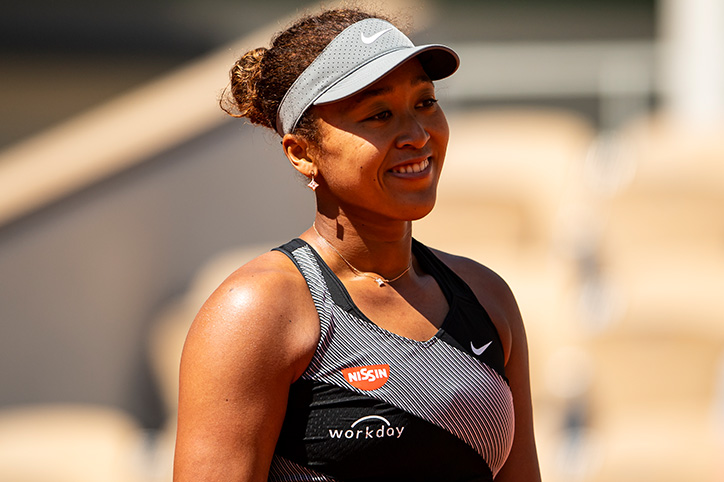When Naomi Osaka suddenly withdrew from the French Open earlier this week for mental health reasons, she wasn’t trying to make a big statement about the pressures that top athletes face. She wasn’t trying to draw attention to herself. She wasn’t trying to be a badass- even though she already is one on the courts. She was merely preserving her own mental health. She was practicing self-care.
For all of the talk about self-care and mental health, the only thing shocking about Osaka’s drastic move to preserve her own was that it even had to come to that in the first place. In a social media post immediately after she withdrew after only one round of the French Open, Osaka revealed that she’d been battling depression since 2018 and that speaking to the press immediately after matches was an unbearably anxiety-inducing experience for her.
She’d told the tournament organizers in advance that she would not be doing press in order to avoid a decline in her mental health and when she did just that, the French Open organizers fined her $15,000. She was told that she’d be fined that same amount each time she skipped a post-match press conference. Osaka could easily have paid that amount repeatedly, but it was the accompanying scrutiny and badgering she wanted to avoid. So she dropped out.
Twenty-three year old Osaka is of a generation that has been raised to prioritize mental well-being, but it seems that when push came to shove, she was expected to do just the opposite, shining a light on the ugly truth that all too often, talk about mental health is just that: talk.
In her post, Osaka went on to say, “I think now the best thing for the tournament, the other players and my well-being is that `I withdrew so that everyone can get back to focusing on the tennis….”. She made clear that this was not only a decision driven by her own needs, but by her respect for her fellow athletes by saying, “I never wanted to be a distraction”.
In other words, Osaka, a premiere, Grand Slam winning tennis pro who has dedicated much of her young life to achieving athletic success, decided to pause her own professional ambitions rather than cause an escalating press storm to swirl around her each time she refused to do press; that would have taken attention away from her fellow tournament players. Osaka made it clear that she had only love for the tennis press who had always been kind to her and that this was about her own mental health struggles as an introvert who is overwhelmed by the post-match avalanche of questions.
The support for Osaka’s bold and unprecedented move (never before had a tennis player dropped out of a tournament for reasons other than physical injury) was swift, abundant and came from celebrities, politicians and fellow athletes around the world.
-Ava DuVernay tweeted, “Take care of yourself like Naomi Osaka.”
-Akilah Hughes served up some ‘told ya so’ sarcasm by tweeting, “Naomi Osaka is a legend.
She said, ‘here’s that press you wanted.”
-Steph Curry wrote, “You shouldn’t ever have to make a decision like this- but so damn impressive taking the high road when the powers that be don’t protect their own. major respect @naomiosaka “
Support came from inside the corporate world, too. Osaka’s sponsor, Nike, who undoubtedly benefit from Osaka appearing before the press while sporting the ‘swoosh’, stood by her unequivocally, telling PEOPLE magazine, “Our thoughts are with Naomi. We support her and recognize her courage in sharing her own mental health experience.”
Calm, the popular wellness app, announced that it would “pay the fine for players opting out of 2021 Grand Slam media appearances for mental health reasons”. What better way to acknowledge that living through a tumultuous pandemic year had affected top athletes as much as anyone else?
Other famous people declaring their support publicly included Martina Navratilova, Alexandria Ocasio-Cortez and Meena Harris, to name a few.
Naomi Osaka was already an inspiration to millions on the tennis court, but perhaps her unexpected move will inspire even more people to stand up for themselves in the workplace and in social situations to advocate for their personal, human needs. She has done more to shine a light on the importance of self-care- real self-care, not the fake, performative kind than all of the inspirational quotes across all social media platforms.
W. Kamau Bell said it best when he tweeted, “The weird thing isn’t that Naomi Osaka withdraw from the French Open to take care of her mental health. The weird thing is that we have a society that even after 2020 still makes it weirs when someone want to take care of their mental health.”
It’s 2021. Let’s all be more like Naomi.








